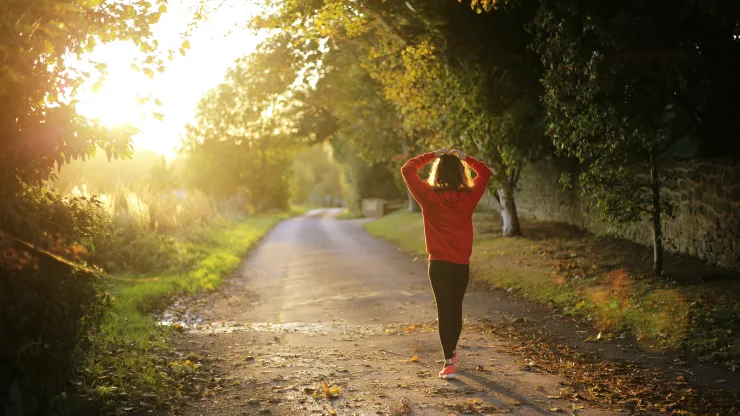In today’s fast-paced world, it is easy to get bogged down by the daily grind.
Stress, anxiety, and depression are becoming increasingly common, and people are looking for ways to improve their mental health and well-being.
One solution that has gained popularity in recent years is nature therapy.
Spending time in nature has been proven to have a positive impact on mental health, and it is a simple and accessible way to improve happiness and overall quality of life.
Jump to Section
The Healing Power of Nature
Nature has a profound effect on our physical, emotional, and mental health.
Numerous studies have shown that spending time in nature can reduce stress, anxiety, and depression, and improve overall mood.
This is because nature has a calming effect on the mind and body, reducing the production of stress hormones and promoting feelings of relaxation and well-being.
Moreover, nature has a restorative effect on the brain, improving cognitive function and memory. Exposure to natural environments has also been shown to reduce symptoms of attention-deficit hyperactivity disorder (ADHD) and increase creativity.
Overall, nature therapy is a powerful tool for improving mental health and well-being.
Benefits of Spending Time in Nature
There are numerous benefits to spending time in nature, including:
- Lower stress levels
- Reduced symptoms of anxiety and depression
- Improved mood and well-being
- Better cognitive function and memory
- Increased creativity
- Improved physical health, including lower blood pressure and reduced risk of chronic diseases.
Tips for Incorporating Nature Therapy
Incorporating nature therapy into your daily routine is easier than you might think. Here are some tips to get started:
- Spend time in a local park or nature reserve
- Take a walk in the woods
- Go for a hike or bike ride
- Plant a garden or tend to houseplants
- Take a yoga or meditation class outdoors
- Practice mindfulness in nature.
Success Stories: Finding Happiness in Nature
Many people have found happiness and improved mental health through nature therapy. One such example is Amy, who was struggling with anxiety and depression.
She started incorporating daily walks in a nearby park into her routine, and gradually noticed a significant improvement in her mood and well-being.
Another success story is John, who was feeling burned out and stressed from work.
He started taking regular hiking trips on the weekends, and found that the time spent in nature helped him recharge and feel more energized.
Conclusion: Embrace Nature for a Happier Life
Nature therapy is a simple and accessible way to improve mental health and well-being.
Whether it’s a walk in the park or a hike in the woods, spending time in nature has numerous benefits, including reduced stress and anxiety, improved mood, and better cognitive function.
By incorporating nature therapy into your daily routine, you can experience these benefits and find happiness and fulfillment in your life.
FAQ
How much time should I spend in nature to see the benefits?
There is no set amount of time that is required to see the benefits of nature therapy. Even a short walk in nature can have a positive impact on mental health and well-being.
However, it is recommended to spend at least 30 minutes in nature every day to experience the full benefits.
What if I don’t have access to nature?
Even if you live in a city or urban area, there are still ways to incorporate nature into your daily routine. You can visit a local park or garden, tend to houseplants, or even practice mindfulness in a quiet outdoor space.
Can nature therapy replace medication and therapy for mental health conditions?
Nature therapy should not be used as a replacement for medication or therapy for mental health conditions. However, it can be used as a complementary therapy to improve overall mental health and well-being.
It is important to consult with a healthcare professional before making any changes to your treatment plan.

With a deep passion for personal development, Ben has dedicated his career to inspiring and guiding others on their journey towards self-improvement.
His love for learning and sharing knowledge about personal growth strategies, mindfulness, and goal-setting principles has led him to create My Virtual Life Coach.
Contact Ben at [email protected] for assistance.




